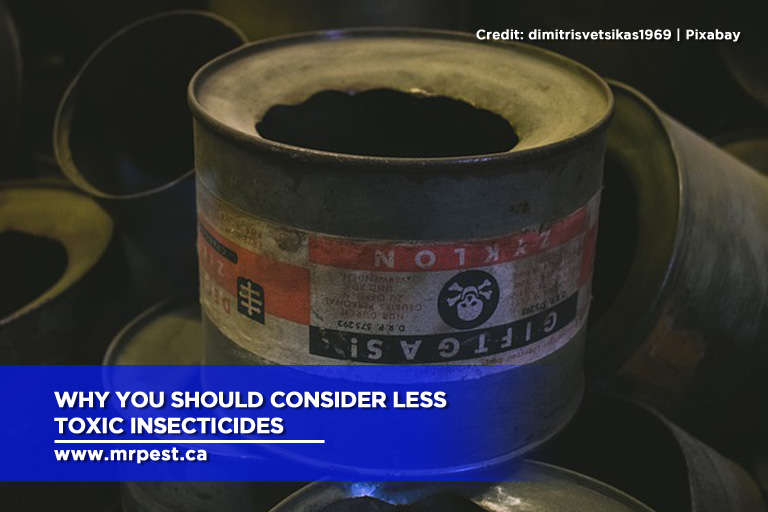A good pest management strategy starts with preventative, cultural, and other non-chemical methods. However, these methods are sometimes not enough on their own. That’s when pesticides or insecticides need to be considered. Before we talk more about pesticides/ insecticides, let’s first distinguish the difference between the two.
What Is the Difference Between Insecticides and Pesticides?
Insecticides and pesticides pertain to similar substances that are usually applied on or near gardens and crops to minimize plant deterioration.
Pesticides include all chemical pest control substances that deter insects and nuisance animals (like mice and rats) alike. On the other hand, insecticide refers only to substances or products that target organisms, like ants, wasps, beetles, bees, aphids, moths, and flies.
Simply, an insecticide is a type of pesticide, but not all pesticide products are considered insecticides.
Why Should We Avoid Using Chemicals to Kill Insects?
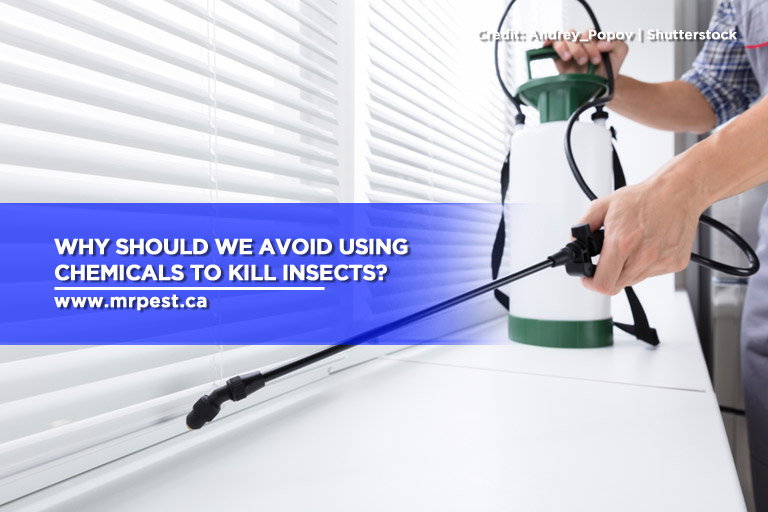
When insects are repeatedly subjected to insecticides they build up resistance. The final result is that the insecticides will have little or no effect at all. Since insects reproduce quickly, the resistance rapidly builds up.
All pesticides and insecticides are toxic by nature in some way to some organisms. The good news is now there are low-toxicity pesticides and insecticides available in the market.
These useful products can be chemical or natural based. Insecticides come in different types and you can use them depending on the nature of the problem. It’s also important to know which of the following pesticides is least toxic to the environment.
What Are the Different Types of Insecticides?
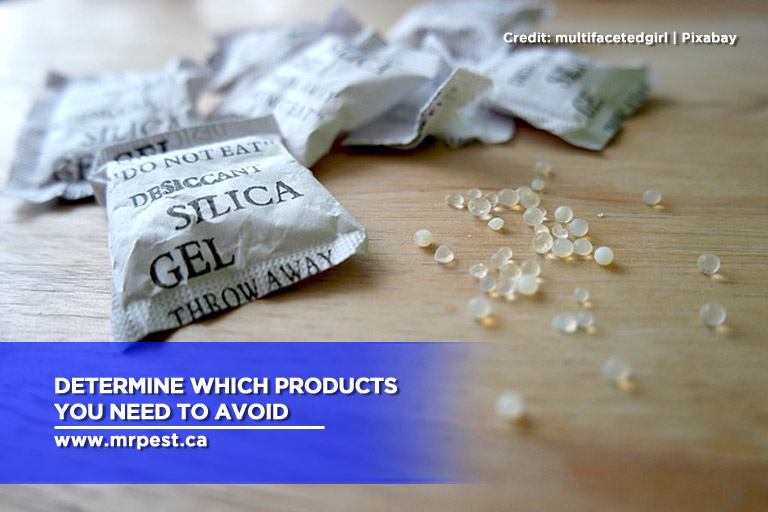
Learn about the different types of insecticides so when you make your purchase, you know exactly which ones to opt for and which ones to avoid.
- Inorganic Insecticides
These substances are either man-made or based on synthetic formulas like pyrethroids or carbamates. They are made from arsenic compounds and heavy metals like silica gel and boric acid. Inorganic insecticides have various types:
-
- Contact Insecticides
The common spray you use at home to kill mosquitoes and insects is an example of a contact insecticide. Some of these substances are used to sanitize the home and environment and deodorize certain areas. They come in the form of coils, sprays, repellents, and liquid vaporizers.
-
- Systematic Insecticides
You put this in the soil and allow it to be absorbed by plant roots. It moves up to the branches, leaves, twigs, and fruits and protects your plant from being eaten by pests. Larvicides and bactericides are also a form of systematic insecticides. These help in eliminating larvae and bacteria that can destroy plants.
-
- Herbicides
Another kind of pesticide that is used to terminate the infected plants. It’s used to destroy the plant parts that insects feed on or the sections where the infection has spread. Fungicides also belong to this category and they are used to kill fungi and weeds that wreak havoc to crops.
-
- Ingested Insecticides
If you have a problem with rodents, rats, and cockroaches, then you can use ingested insecticides. A rodenticide is also an example of an ingested insecticide. This poison is effective for killing rats. It’s used as bait and fed to rats to exterminate them.
- Organic Insecticides
This variety is typically made from fatty acids and plant oils that are sourced from animals or plants. They are earth-friendly and safe for your plants.
What Are Less Toxic Alternatives?
Safer alternatives are typically organic in nature. The types of insecticides belonging to this category are:
- Various Oils and Soaps
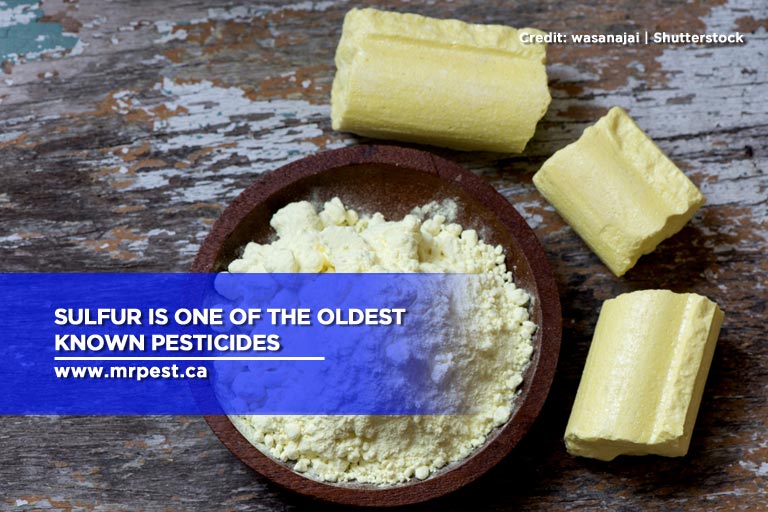
Insecticidal oils and soaps that contain substances like sulphur have various benefits for controlling insects or pests. They are non-toxic to people and other mammals and are generally safe to the harmless insects in the environment. They can be used to control several common soft-bodied insects such as scales, mites, whiteflies, thrips, aphids, and mealybugs. Pests can’t develop resistance to oils and soaps. Oils and soaps are also easy to find and affordable.
Since these oils and soaps work on contact, you must coat both the upper and lower leaf surfaces as well as stems for the best results. You may need to reapply as necessary. Apply oil sprays or soaps in the early morning or late evening to minimize drying times for more efficient pest control.
- Insecticidal Soaps
This is made using ivory liquid or detergent and can be sprayed on plants to safeguard them from insects. It’s non-toxic and should not be sprayed under direct sunlight.
These soaps destroy the protective coat of soft-bodied insects which makes them prone to dehydration. Making homemade insecticidal soaps is not advisable because that can cause foliage to burn. The commercial insecticidal soaps are tested on plants and are proven not to cause damage. Some concentrated soaps can be diluted before spraying and some are available as pre-mixed bottles.
- Horticultural Oils
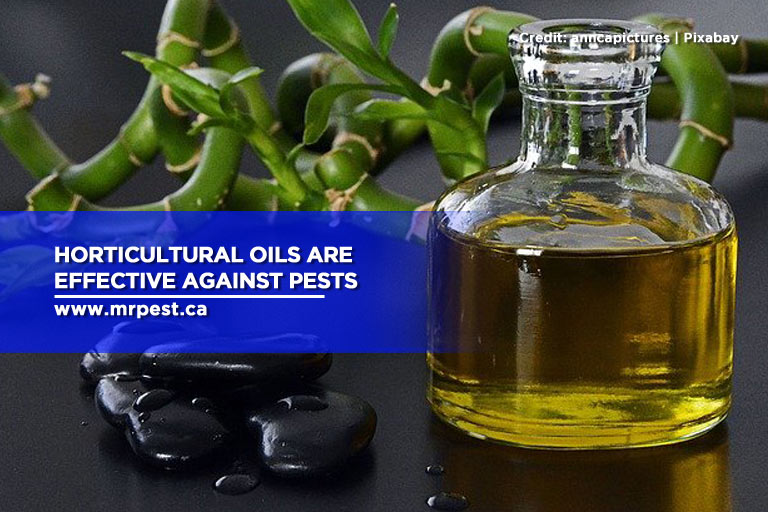
Oil-based products suffocate soft-bodied insects upon contact. They are formulated as either horticultural or dormant oils. Those classified as dormant oils are denser, less refined oils used on leafless plants to control overwintering pests. Remember, they can also destroy plant foliage if applied during the growing season. The horticultural oils also called superior oils or summer oils, are lighter and more refined oils. You can apply it to both dormant and actively growing plants for pest control purposes. Don’t use these oils when the temperature is above ninety degrees Fahrenheit, or if it’s expected to rain within 24 hours.
Take note to spray very late in the day to slow drying time, and to achieve better pest control.
- Botanical Insecticides
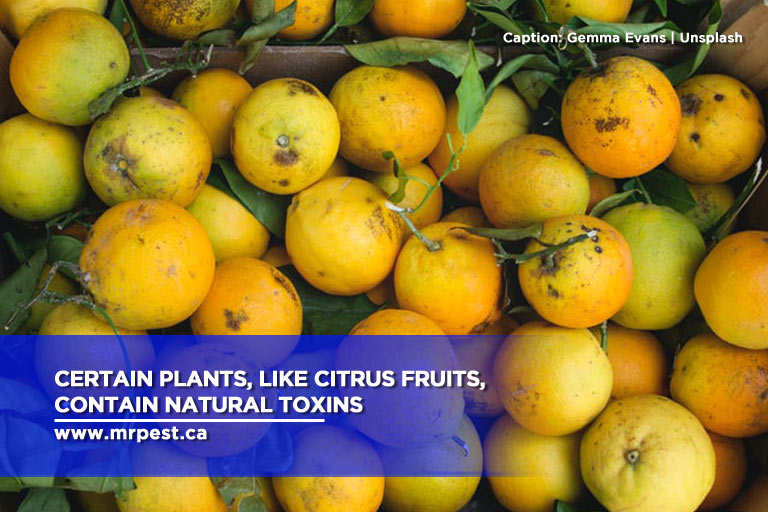
These insecticides are naturally occurring toxins derived from plants. They offer various benefits compared to synthetic insecticides. Botanical insecticides deteriorate quickly in the environment, thus minimizing the risk of residues on food crops and are less harmful to beneficial insects. Since most botanical insecticides are eaten by insect pests, they are only harmful to these insects and do little harm to beneficial organisms.
- Limonene
This is produced from citrus oils derived from oranges and other citrus fruit peels. It’s used as a contact insecticide against fleas, silverfish, ants, roaches, palmetto bugs, and many other pests. It has a low dermal and oral toxicity to birds, fish, and mammals. However, it can cause sensitization or skin irritation in some humans.
The pesticide products containing limonene are also used for tick and flea control on pets, insect repellents, outdoor car and dog repellents, mosquito larvicides, and insecticide sprays. Most products enriched with limonene are labelled as safe for use in areas near food. A limonene-based product is a safe insecticide for the home.
- Neem products
Neem oil is a botanical insecticide that is made from the extracts of Neem tree seeds. This active ingredient appears on product labels as hydrophobic extracts of neem oil. It’s used to control numerous varieties of pests such as beetles, scale crawlers, spider mites, mealybugs, aphids, leafminers, whiteflies, thrips, and caterpillars. Neem oil is very effective against actively growing immature pests. Neem oil sprays kill tiny insects and mites by suffocation as do horticultural oil sprays. They also have some fungicidal properties, but it’s usually limited to powdery mildew control.
Some insecticides can be considered less toxic for various reasons. Typically, they should pose less risk to environmental and human health than regular insecticides. Many less toxic insecticides rapidly disintegrate and don’t accumulate in the environment or the human body. Some are very pest-specific and do little or no damage to other insects.
Are you looking for reliable, consistent, and quality pest control services? Mr. Pest Control is here to help you with your pest infestation problems. Whether you need wildlife or ant control, call us at (705) 739-7378 or email us at peteb@mrpest.ca for inquiries or to book an appointment.

